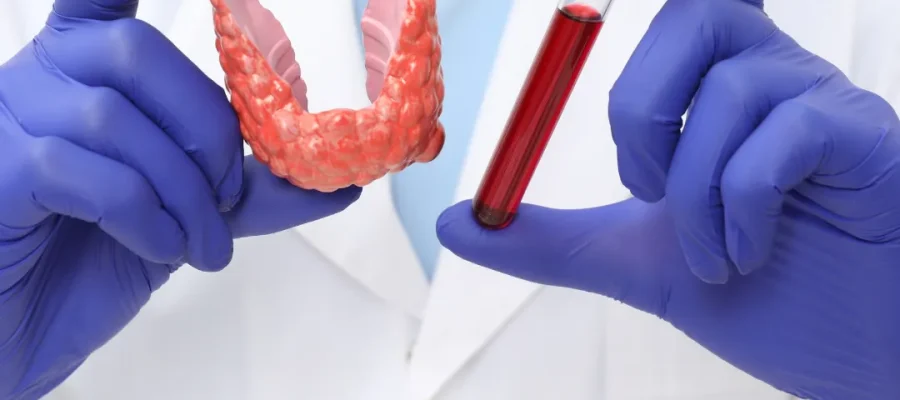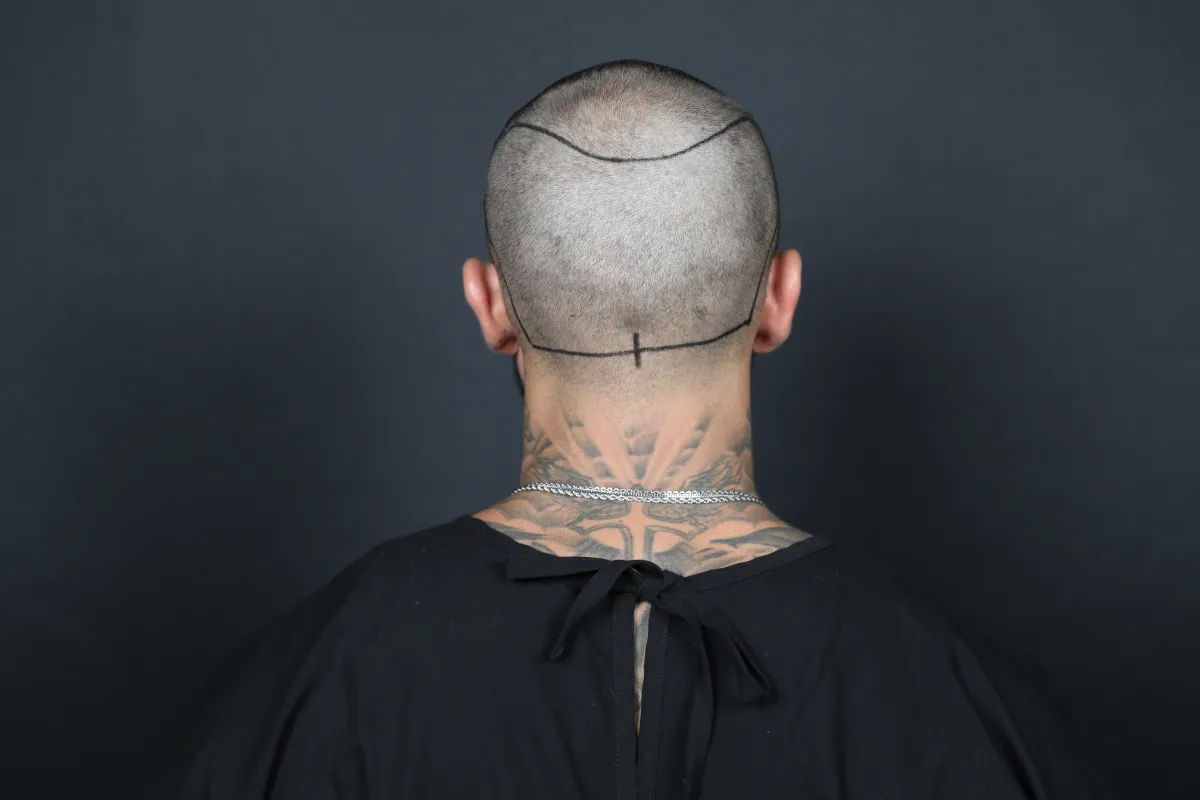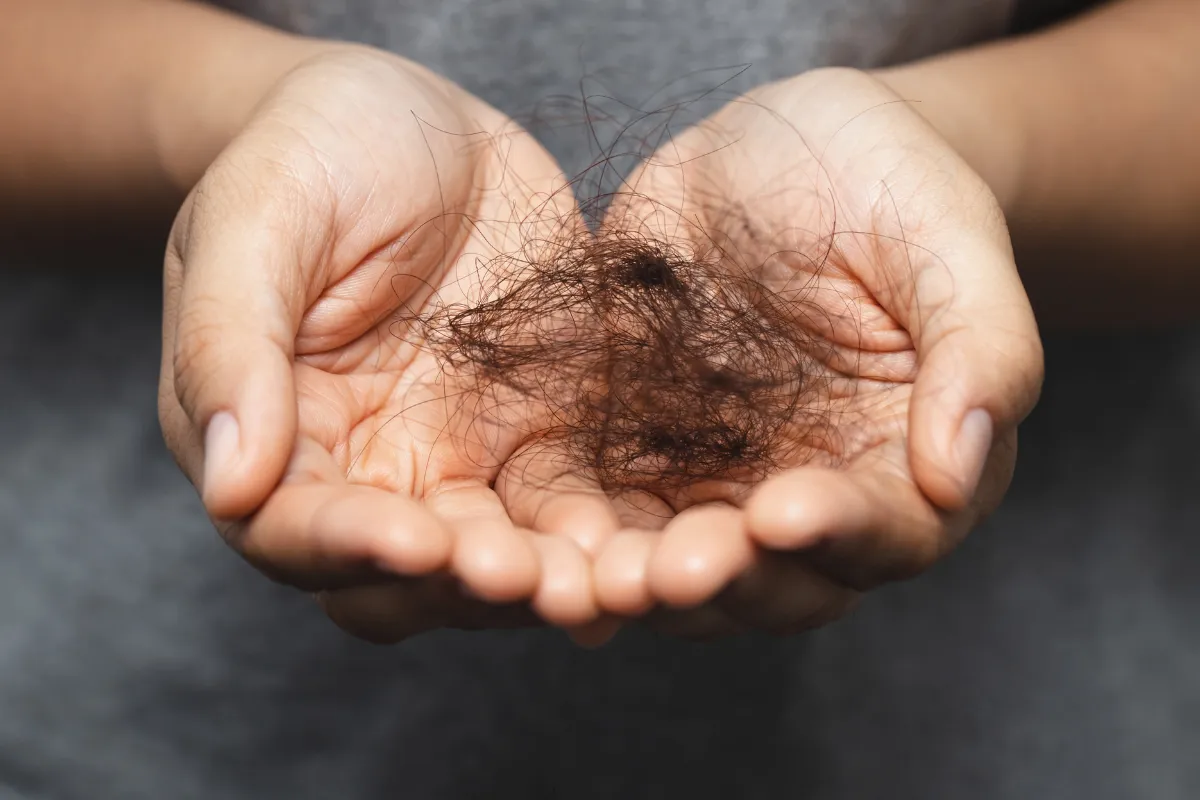
Can People With Thyroid Problems Get A Hair Transplant?
Yes—many people with hypothyroidism, hyperthyroidism, Hashimoto’s, or Graves’ disease can get a hair transplant. The key is control and stability. Elective procedures are usually safest when thyroid levels are well managed, your hair loss pattern has settled, and your donor area remains strong enough to supply grafts.
Does Thyroid Disease Disqualify You From A Hair Transplant?
A thyroid diagnosis does not automatically disqualify you from hair transplantation. What matters is whether your condition is controlled and whether your scalp and donor area can support surgery and regrowth. Most clinics will ask for a recent medical history, current medications, and lab results if there’s known thyroid disease.

Why Thyroid Stability Matters Before Surgery
Thyroid hormones affect metabolism, circulation, and tissue repair—factors that influence how well grafts “take” and how smoothly the scalp heals. For elective surgery, medical guidance commonly recommends postponing procedures until you’re in a stable (euthyroid) state when possible. This reduces avoidable risk and supports predictable recovery.
How Thyroid Disorders Can Affect Donor Hair
Thyroid-related hair loss often presents as diffuse thinning, meaning it can affect the entire scalp rather than only the hairline or crown. When thinning extends into typical donor zones (back and sides), there may be fewer robust follicles available for transplantation. Regrowth after successful thyroid treatment is common, but it can take months and may not fully reverse in every case.
Can A Hair Transplant Fix Thyroid-Related Hair Loss?
A transplant can restore hair in areas where follicles no longer produce hair reliably, but it doesn’t treat the thyroid condition itself. If thyroid-driven shedding is still active, you can continue to thin around transplanted areas, which may reduce the cosmetic impact over time. For many patients, the best results come after medical management has stabilized the shedding pattern and donor strength has been confirmed.

What To Expect During Recovery If You Have Thyroid Disease
When thyroid levels are controlled, the general timeline is similar to other patients: early healing in the first 1–2 weeks, temporary shedding of transplanted hairs, then new growth starting a few months later with maturation over the following months. If your thyroid medication changes during recovery, some shedding can occur, so coordination with your endocrinologist matters. Keeping follow-up appointments and maintaining consistent treatment supports steadier long-term density.

Pre-Consultation Checklist For Thyroid Patients
Lab Tests And Medical Clearance
If you have a diagnosed thyroid disorder, many surgeons will want recent TSH and, where appropriate, free T4/free T3 results. Elective procedures are often deferred when TSH is significantly outside the normal range, especially if symptoms are uncontrolled. A quick note or clearance from your endocrinologist can help align timing and medication plans.
Medications And Day-Of-Surgery Notes
Do not stop thyroid medication unless your prescribing clinician instructs you to. Share all medications and supplements with your clinic so anesthesia choices and post-op prescriptions can be planned safely. If you’ve recently started or changed levothyroxine (or antithyroid treatment), your team may suggest waiting until levels and symptoms are steady.
When To Delay A Hair Transplant
A delay is often the safer call when:
- Thyroid levels are unstable or symptoms are active (fatigue, palpitations, unexplained weight changes, tremor).
- Diffuse thinning is ongoing and donor density is dropping.
- There’s another active inflammatory scalp condition (scarring or autoimmune hair loss patterns) that could compromise graft survival.
FAQs About Hair Transplants And Thyroid Disorders
Can I get a hair transplant if I have hypothyroidism?
Often yes, as long as hypothyroidism is treated and stable, and the donor area is strong enough for graft harvesting.
Can hyperthyroidism affect surgery or healing?
Uncontrolled hyperthyroidism can raise surgical risk and complicate recovery, so stabilization is typically recommended before elective procedures.
Will a hair transplant stop thyroid-related shedding?
No. A transplant redistributes follicles; it won’t stop hormonal shedding if your thyroid condition remains uncontrolled.
Does thyroid hair loss always grow back with treatment?
Regrowth is common after successful treatment, but it may take several months and can be incomplete in some people.
Should I keep taking my thyroid medication around surgery?
In most cases, yes—unless your clinician advises otherwise. Your clinic and endocrinologist should coordinate if any adjustments are needed.




